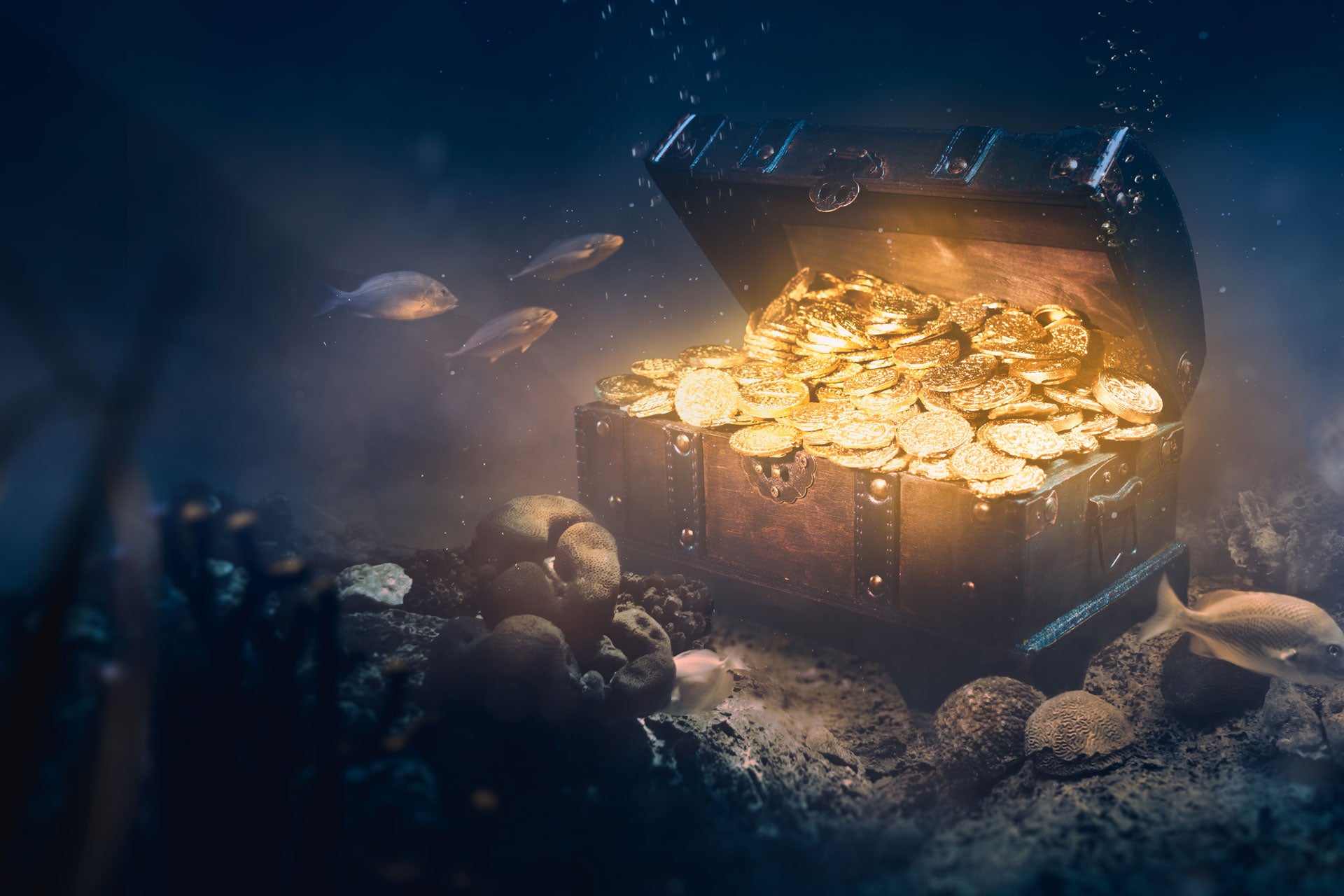
The $100bn worth of sunken treasure and other underwater artifacts in the waters surrounding The Bahamas are being excavated and put on the blockchain.
The project, which is being assisted by Bahamian tech company PO8, is seeing world-renowned marine archaeologists excavate the country’s sunken treasure in order to improve the marine habitat and generate money for the country’s so-called blue economy.

Access deeper industry intelligence
Experience unmatched clarity with a single platform that combines unique data, AI, and human expertise.
Each artifact is then given cryptographic tokens known as non-fungible tokens (NFTs), which function as a smart contract for the object in question.
The real-world assets will then remain with the PO8 Museum Foundation where they will be exhibited, while the NFTs will be sold and traded around the world.
PO8 anticipates the project will contribute $60m a year to the Bahamian economy, while adding over 100 jobs during peak seaon.
Sunken treasure blockchain project brings “third pillar” to Bahamian economy
For PO8, the sunken treasure blockchain project is introducing technology as a key earner in the Bahamas.

US Tariffs are shifting - will you react or anticipate?
Don’t let policy changes catch you off guard. Stay proactive with real-time data and expert analysis.
By GlobalData“NFTs are a new store of value and commodity class, which is exactly what the blue economy needs right now, a new way to generate revenue and create true impact for island nations like The Bahamas,” said Matthew Arnett, co-founder and CEO of PO8.
“We are shifting The Bahamas from tourism to a new third pillar, which is tech, and now in tandem with our love for the ocean we aren’t just taking away, but giving back to the ocean, essentially feeding what feeds us.”
Benefits for the marine environment
While the project has potentially strong benefits for the country’s economy, it will also help marine conservation in the area.
Many of the marine artifacts being excavated are made of metals, which if left on the seabed will have the potential to harm both fisheries and the wider marine habitat in the area.
By removing the sunken treasure from the area, the project will aid in the restoration of natural reefs. New artificial reefs will also be placed at the excavation sites, allowing further marine life to thrive.
The marine archaeologists working on the project include David Gallo, who co-led the most recent expedition to the RMS Titanic shipwreck site; Troy Launay, who was a member of Amazon’s Apollo F-1 Engine recovery team and Claudio Bonifacio, an acclaimed shipwreck researcher.
Read more: Blockchain banknotes introduced for world’s first decentralised digital national currency







